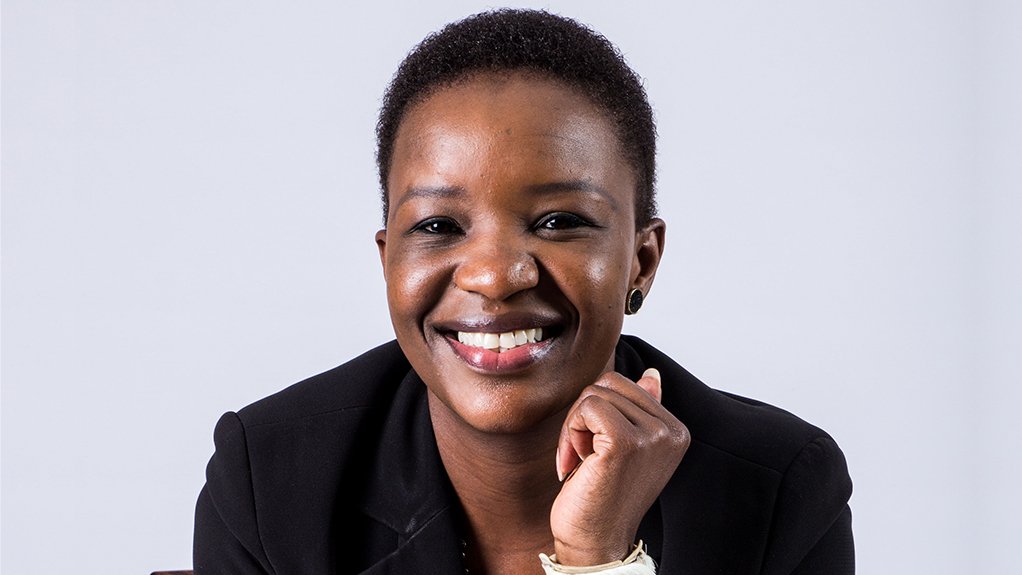Business organisation Business Leadership South Africa (BLSA) CEO Busi Mavuso has said that no matter what financial salves Finance Minister Enoch Godongwana allocates to soothe South Africa’s numerous economic ailments in his Budget speech on February 22, the money will not achieve much unless there is a significant improvement in government’s ability to implement policy and spend the funds effectively.
“A glance at the unfortunate states of our public health and education systems shows that often it is not lack of money but inappropriately capacitated departments, misgovernance and, sadly, corruption that causes the problems,” she said in her February 20 newsletter.
Mavuso pointed out that South Africa spends 20.3% of its gross domestic product (GDP) on healthcare and 12.3% on education – far more than most emerging markets and even ahead of some developed economies such as Iceland, which in 2020 spent 9.6% of its GDP on healthcare and 7.7% on education, according to European Commission figures, while Italy only spent 9.6% on healthcare and 4.3% on education.
“Yet, despite this, even the most sanguine of observers cannot describe the state of these two sectors as anything other than a crisis,” she noted.
In Mavuso’s view, President Cyril Ramaphosa’s drive to upgrade the public service, primarily through the National Implementation Framework towards the Professionalisation of the Public Service is a step in the right direction, but still a long way off from producing positive results.
The consequence was, therefore, one of widespread ineffective expenditure, she said.
“The big one is the [State-owned] Eskom debt repayment. Godongwana is expected to announce that government is taking over a considerable portion of Eskom’s R400-billion debt. Markets will be watching closely to see how the promised debt relief will be structured, how much it will be and what conditions are attached,” she noted.
Mavuso said this was an important step, as the reduced debt service costs would make room for Eskom to finance urgent upgrades to power stations, among other critical issues. However, it was not a sustainable long-term solution.
“Eskom’s expenses will continue to be higher than the revenue it can generate, particularly with the huge amounts needed for repairs to and maintenance of power stations, and that is not sustainable. Various steps are needed to get it onto a sound financial footing, including addressing municipal debt of almost R50-billion and rising,” she said.
Another important step Mavuso highlighted was the full unbundling of Eskom into the generation, transmission and distribution arms, which was yet to happen despite being announced by Ramaphosa four years ago in 2019.
“We also hope to get some insight into the state of disaster. What we don’t want to see is a big chunk of money being budgeted for under a vague, sweep-all name like ‘emergency procurement’ with little further detail,” she said.
When announcing the state of disaster earlier this month, Ramaphosa promised that the Auditor-General would be brought in to ensure continuous monitoring of expenditure to guard against any abuses of the funds needed to resolve the energy crisis.
Mavuso said that, while this sentiment was encouraging, the conditionality attached to any such funds needed to not only be transparent but also confine the spending to specific areas where it was needed – these being areas that directly addressed the loadshedding crisis.
“While the Auditor-General’s office has served South Africa proudly with an excellent record of delivering audits that meticulously record the amounts that government entities spend irregularly, wastefully or fruitlessly, the forces of patronage have proven to be extremely powerful and resilient,” Mavuso warned, noting that transparency can be a powerful deterrent to corruption and would aid the Auditor-General’s important role.
It can reliably be presumed that, with loadshedding causing widespread economic damage every day, addressing the energy crisis will be central to the budget.
In this vein, the markets will keenly watch for details of the incentive to stimulate rooftop solar and other off-grid solutions for businesses and residents.
“It’s important for the incentive to be appealing to the majority who simply cannot afford even a fraction of the exorbitant costs of rooftop solar and battery inverters. We also need details on how the bounce-back loan scheme will be adapted to include loans for solar installations,” Mavuso said.
She pointed out that the fact that the energy crisis had been allowed to deteriorate to this extent pointed to a historical failure of leadership.
“The latest steps – including the state of disaster and appointment of a new minister of electricity – may be even more damaging to the country without meticulous planning and strong, ethically driven leadership,” she warned.
Mavuso cautioned that other major problem areas that received extra funding also needed strong management.
“We hope government is quick to call on the widespread expertise that exists within the business sector to ensure funds are spent effectively and particularly to help accelerate the process of transforming the key energy and transport sectors,” she said, noting that the Budget would not enjoy credibility for long without the necessary political will to back it up.
Ramaphosa promised to “unleash businesses and households to invest in rooftop solar” in his State of the Nation Address on February 9.
Mavuso said that, with solar installation costs ranging from about R150 000 to R350 000, a half-hearted approach would not make much of an impact.
“There’s a danger that the proposed incentives benefit only high-income earners,” she warned.
EMAIL THIS ARTICLE SAVE THIS ARTICLE ARTICLE ENQUIRY
To subscribe email subscriptions@creamermedia.co.za or click here
To advertise email advertising@creamermedia.co.za or click here











